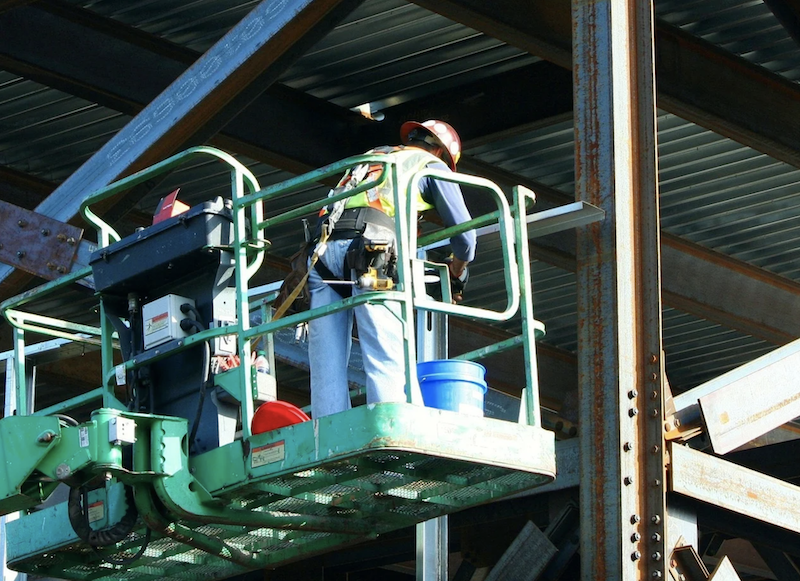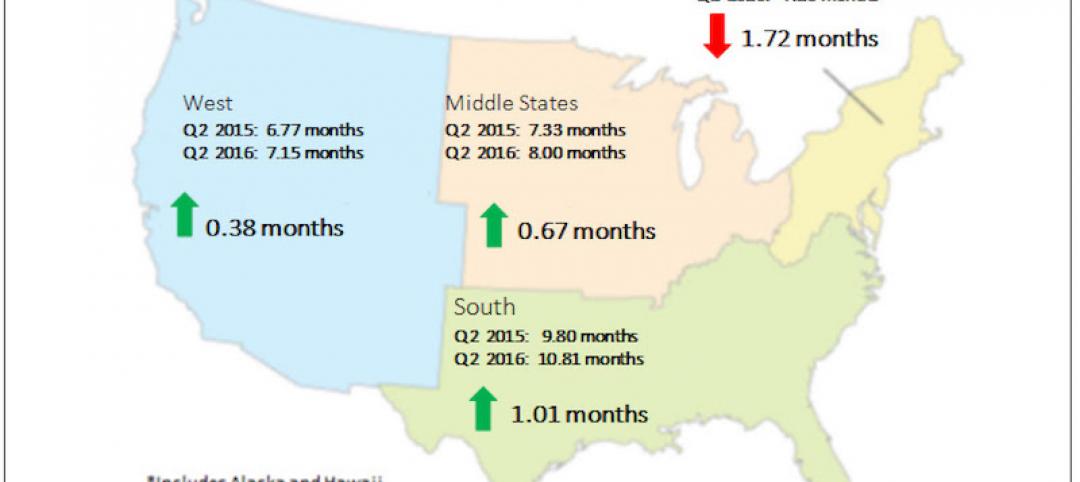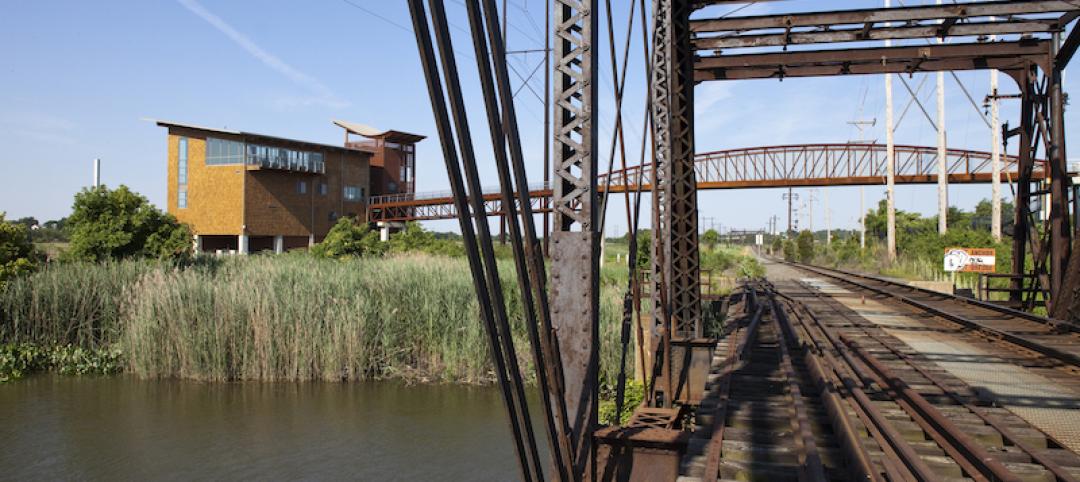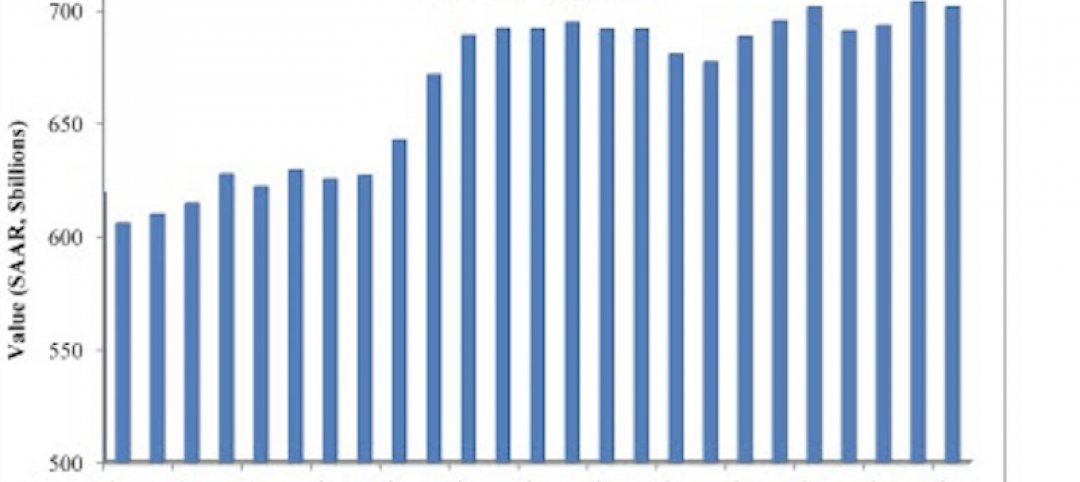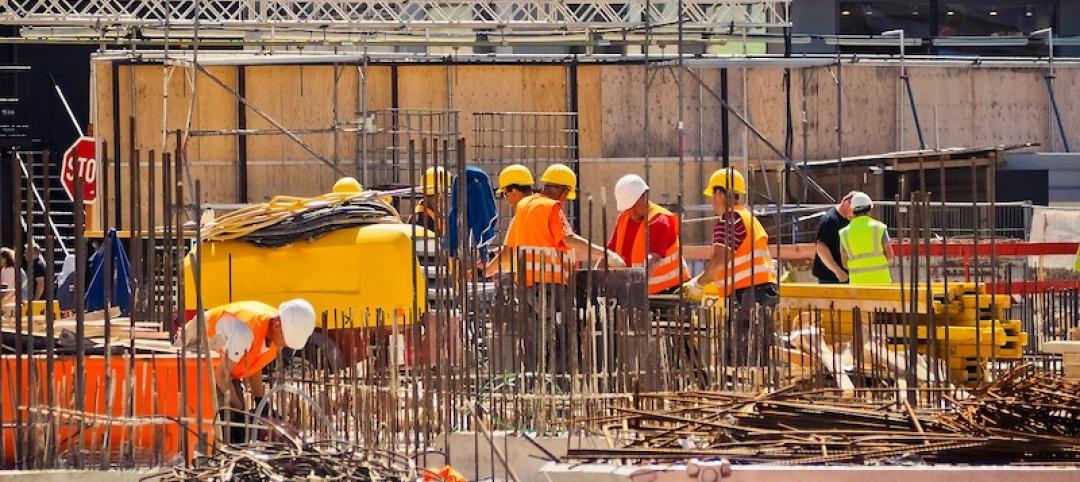Construction employment in April remained below the pre-pandemic high set in February 2020 in 36 states and the District of Columbia, despite increases from March to April in 26 states, according to an analysis by the Associated General Contractors of America of government employment data released today. Association officials said that the sector’s recovery was being undermined by increases in materials prices, delays in receiving key construction supplies and labor shortages.
“Today’s numbers show that construction has yet to fully recover from the effects of the pandemic in most parts of the country,” said Ken Simonson, the association’s chief economist. “Even where employment has topped pre-pandemic levels, the gains are likely due mainly to feverish homebuilding and remodeling, not to widespread resumption of nonresidential building and infrastructure projects.”
Seasonally adjusted construction employment in April exceeded the February 2020 level in only 14 states. Utah added the most jobs (5,100 jobs or 4.5%), trailed by Idaho (4,400 jobs, 8.0%), Washington (3,800 jobs, 1.7%), and South Carolina (1,900 jobs, 1.8%). Idaho added the highest percentage, followed by South Dakota (6.3%, 1,500 jobs), Utah, and Rhode Island (3.5%, 700 jobs).
Employment declined from the February 2020 level in 36 states and D.C. Texas lost the most construction jobs over the period (-44,800 jobs or -5.7%), followed by New York (-29,300 jobs, -9.1%), California (-27,600 jobs, -3.0%), Louisiana (-19,600 jobs, -14.3%), and New Jersey (-15,600 jobs, -9.5%). Louisiana recorded the largest percentage loss, followed by Wyoming (-13.5%, -3,100 jobs), New Jersey, New York, and West Virginia (-8.7%, -2,900 jobs).
For the month, construction employment increased in 26 states, decreased in 21, and held steady in three states and D.C. Illinois added the most construction jobs (4,000 jobs, 1.8%), followed by Pennsylvania (3,400 jobs, 1.4%), Wisconsin (2,900 jobs, 2.4%), Kentucky (1,900 jobs, 2.4%) and North Carolina (1,600 jobs, 0.7%). New Hampshire had the largest percentage gain (3.2%, 900 jobs), followed by Rhode Island (2.4%, 500 jobs), Kentucky, and Wisconsin. Texas lost the most construction jobs for the month (-13,600 jobs, -1.8%), followed by New York, (-3,900 jobs, -1.0%) and Iowa (-3,100 jobs, -3.9%). Iowa had the largest percentage loss, followed by Alabama (-2.4%, -2,200 jobs), and Texas.
Association officials noted that rapid increases in the cost of many construction materials are hammering firms still trying to recover from the pandemic. Deliveries of many materials are often delayed because of manufacturing and shipping backups. In addition, many firms report having trouble finding workers to hire amid continued school closures, lingering worries about the pandemic and elevated unemployment benefits.
“Federal officials can give the industry a needed boost by removing tariffs on key construction materials such as lumber, steel, and aluminum, and taking steps to ease supply-chain backups,” said Stephen E. Sandherr, the association’s chief executive officer. “It is also time to end barriers keeping workers home, including reopening schools and ending the unemployment supplements.”
View state February 2020-April 2021 data, 12-month rankings, 1-month rankings and map.
Related Stories
Market Data | Sep 22, 2016
Architecture Billings Index slips, overall outlook remains positive
Business conditions are slumping in the Northeast.
Market Data | Sep 20, 2016
Backlog skyrockets for largest firms during second quarter, but falls to 8.5 months overall
While a handful of commercial construction segments continue to be associated with expanding volumes, for the most part, the average contractor is no longer getting busier, says ABC Chief Economist Anirban Basu.
Designers | Sep 13, 2016
5 trends propelling a new era of food halls
Food halls have not only become an economical solution for restauranteurs and chefs experiencing skyrocketing retail prices and rents in large cities, but they also tap into our increased interest in gourmet locally sourced food, writes Gensler's Toshi Kasai.
Building Team | Sep 6, 2016
Letting your resource take center stage: A guide to thoughtful site selection for interpretive centers
Thoughtful site selection is never about one factor, but rather a confluence of several components that ultimately present trade-offs for the owner.
Market Data | Sep 2, 2016
Nonresidential spending inches lower in July while June data is upwardly revised to eight-year record
Nonresidential construction spending has been suppressed over the last year or so with the primary factor being the lack of momentum in public spending.
Industry Research | Sep 1, 2016
CannonDesign releases infographic to better help universities obtain more R&D funding
CannonDesign releases infographic to better help universities obtain more R&D funding.
Industry Research | Aug 25, 2016
Building bonds: The role of 'trusted advisor' is earned not acquired
A trusted advisor acts as a guiding partner over the full course of a professional relationship.
Multifamily Housing | Aug 17, 2016
A new research platform launches for a data-deprived multifamily sector
The list of leading developers, owners, and property managers that are funding the NMHC Research Foundation speaks to the information gap it hopes to fill.
Hotel Facilities | Aug 17, 2016
Hotel construction continues to flourish in major cities
But concerns about overbuilding persist.
Market Data | Aug 16, 2016
Leading economists predict construction industry growth through 2017
The Chief Economists for ABC, AIA, and NAHB all see the construction industry continuing to expand over the next year and a half.


